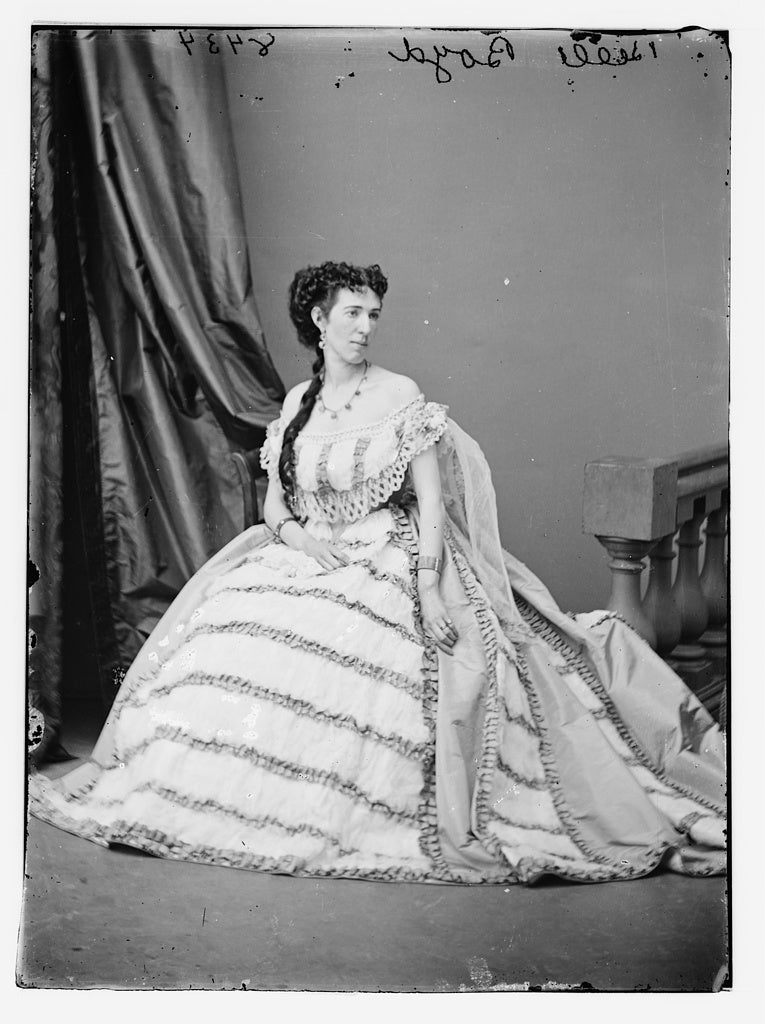One of the most notorious Confederate spies passed away this week in 1900 nearly as dramatically as she lived. Belle Boyd died while performing in what is today the Wisconsin Dells. She lived an extraordinary life. Arrested six times and imprisoned three, Boyd would likely have been executed had she been a man.
Maria Isabella “Belle” Boyd was a Virginia teenager when the Civil War began. When Union troops occupied her hometown of Martinsburg, Virginia (now in West Virginia), Boyd shot and killed a soldier who she claimed “addressed my mother and myself in language as offensive as it is possible to conceive.” Women, she continued, “were obliged to go armed in order to protect ourselves as best we might from insult and outrage.”
Her actions launched her career as “La Belle Rebelle.”
Stay informed on the latest news
Sign up for WPR’s email newsletter.
Boyd began visiting Union camps to gather information for Confederate Generals Pierre Beauregard and Thomas “Stonewall” Jackson. Few suspected a young woman of being an effective spy. Even when she was caught, federal officers did little beyond scolding what they believed was an innocent girl.
She flirted her way into the confidence of many a Union officer. Of one soldier, she wrote, “I am indebted for some very remarkable effusions, some withered flowers, and last, but not least, for a great deal of very important information.” She hoped this officer would be consoled by the thought that “these were days of war, not of love, and there are still other ladies in the world besides the ‘rebel spy.’”
She was arrested several times, but managed to avoid incarceration until the summer of 1862 when U.S. Secretary of War Edwin Stanton personally issued a warrant for her arrest. She was released as part of a prisoner exchange but was arrested again in July 1863. While in prison, she waved Confederate flags from the window, sang Rebel songs, and sewed messages inside a rubber ball to her supporters that she tossed out the window.
Boyd eventually escaped to Canada and then England with the help of a Union officer named Sam Hardinge that she soon married. She spent two years in England, writing her memoir and working as an actress for a few years.
Hardinge died in 1866 and Boyd returned to the U.S. and married another Union officer, John Hammond. They had four children before divorcing in 1884. Boyd married again the following year to a young actor who acted as her business manager. She also began acting again, bringing her Civil War adventures to the stage in dramatic form. She ended her shows with “One God, one flag, one people – forever!”
Boyd died while on tour in Kilbourn, now Wisconsin Dells, of a heart attack on June 11, 1900. She was buried there in Spring Grove Cemetery.
Boyd scorned expectations for respectable women of her era. She exploited common assumptions about women’s sensitive and demure nature to take on daring espionage work that made her famous in the North and South.
Wisconsin Public Radio, © Copyright 2025, Board of Regents of the University of Wisconsin System and Wisconsin Educational Communications Board.



